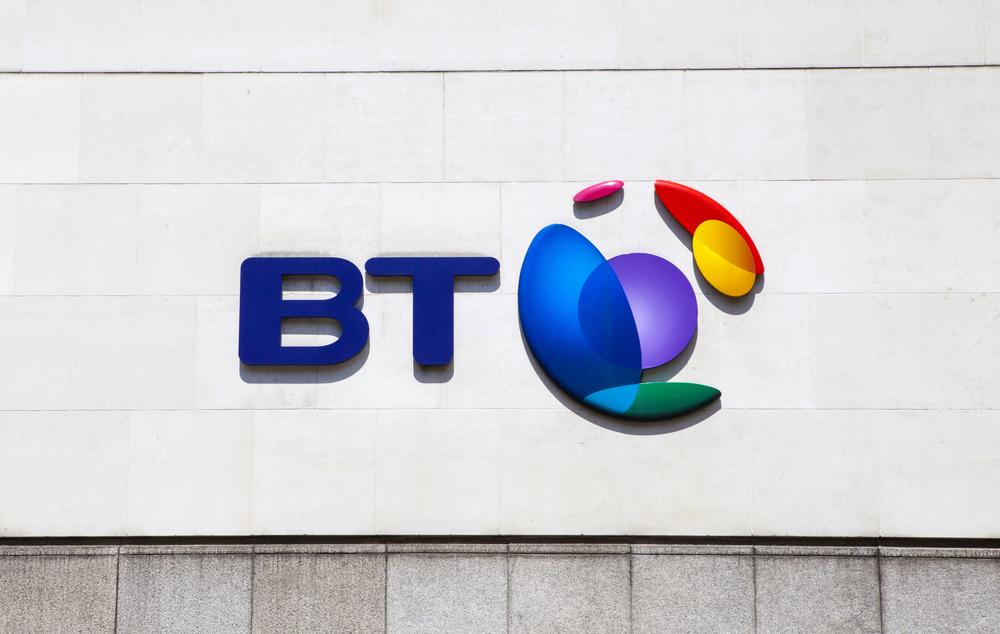BT shares (LON: BT.A) have fallen after Labour made a pledge to nationalize the firm and offer free broadband for all in an attempt to win voters ahead of the general election.
Shares of the telecoms giant fell 2.64% after the abrupt announcement to 190p. 15/11/19 10:58BST.
Labour have promised to provide free fibre broadband by 2030 for homes and businesses, providing it wins the December election.
The party pledged that it would nationalize BT to deliver the policy and introduce a tax on rivals such as Vodafone (LON: VOD) and Virgin Media.
Shadow chancellor John McDonnell told the BBC the “visionary” £20 billion plan would “ensure that broadband reaches the whole of the country”.
Prime Minister Boris Johnson said it was “a crackpot scheme”.
PM Johsnon added that would cost the taxpayer “many tens of billions” and that the Conservatives would deliver “gigabit broadband for all”.
And the Lib Dems called it “another unaffordable item on the wish list”.
Virgin have responded with the following statement, “Virgin Media has the fastest scaled network in the UK and has pledged to bring next-generation Gigabit broadband to half of the UK, by the end of 2021. As this commitment shows, private investment is essential to delivering improved broadband infrastructure”.
“With billions of pounds worth of private money invested in the UK, Virgin Media continues to expand its network, providing competition and choice to consumers”.
“Government policy has a role to play and can help to accelerate broadband deployment in a way that minimises the level of public subsidy needed and provides the UK and consumers with incredible connectivity within a competitive market”.
BT Chief Executive Philip Jansen told the BBC that Labour had under-estimated the price of its pledge.However, Jansen was keen to remain impartial and said he would be content to work with any governing party to help build a digital Britain.
Jansen concluded that it would not be ‘easy’ to implement the Labour policy, and changes would have to be enforced concerning shareholders, BT pensioners and employees.
This comes as a response to PM Johnson’s recent pledge to spend £5 billion to bring full fibre broadband to every British household by 2025.
But Mr McDonnell said the Conservatives’ funding plan for improving broadband was “nowhere near enough” and would leave the UK falling further behind other countries who already have fibre more widely available.
The plan includes nationalising parts of BT – namely its digital network arm Openreach – to create a UK-wide network owned by the government.
“We’re putting the money in and therefore we should own the benefit as well,” said the shadow chancellor.
Earlier this year, Ofcom reported that only 7% of UK households have access to full fibre broadband, which both parties have pledged to improve.
However, this is a real shot in the dark from the struggling Labour party. The pledge to nationalize BT would cost the taxpayers million, could further worsen the budget deficit and maybe worse off all completely misguide voters come December 12th.
The policy comes at a time where there does not seem to be any prospect of Labour winning the magical 326 seats in Westminster, and policies like this may not benefit Labour’s cause.
Labour have only given voters a brief explanation of how this policy would be implemented, but further details would be required to understand the size and magnitude of this legislation.
However, Labour did add that they would tax UK tech firms on a percentage system on global profits and UK sales, which could raise up to £6 billion. Once again, this does seem far fetched in a market where technological developments are chaining by the day.
But Conservative Culture Secretary Nicky Morgan said: “Jeremy Corbyn’s fantasy plan to effectively nationalise broadband would cost hardworking taxpayers tens of billions.
“Corbyn is clearly so desperate to distract from his party’s divisions on Brexit and immigration that he will promise anything, regardless of the cost to taxpayers and whether it can actually be delivered. What reckless idea will be next?”
Industry experts have had their say on the unrealistic nature of Labour policy,
Julian David, chief executive of TechUK, which represents many UK tech firms, said: “These proposals would be a disaster for the telecoms sector and the customers that it serves.
“Renationalisation would immediately halt the investment being driven not just by BT but the growing number of new and innovative companies that compete with BT.”
The shift in shares is not as significant as analysts may have expected, showing a skepticism from traders about the chances of Corbyn winning the majority in the December election.
“The loses in BT have been limited due to the market perception that Corbyn hasn’t got a chance of becoming Prime Minister,” said John Truong, Equity Trader at Frederick & Oliver. He also highlighted the negative impact on shares in sectors earmarked for possible nationalisation such as the Utilities sector.

